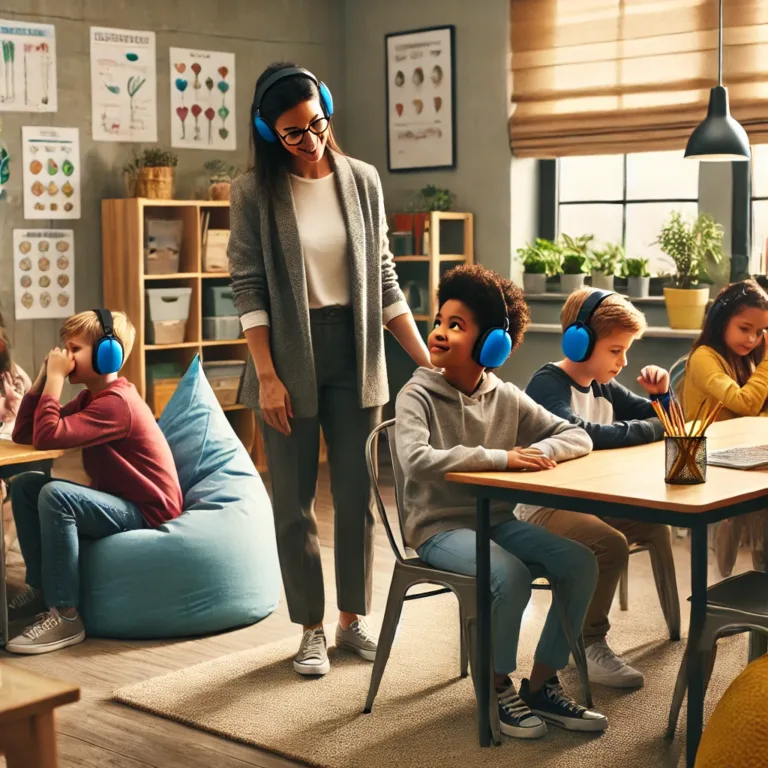No products in the cart.
Breaking the Cycle: Early Mental Health Support to Prevent Juvenile Justice Involvement
Children’s mental health plays a critical role in their overall development, behavior, and decision-making. When left unaddressed, mental health challenges can lead to difficulties in school, family life, and social situations, increasing the risk of behavioral issues. For some children, these untreated problems can escalate, eventually leading to involvement with the juvenile justice system. Fortunately, early intervention in children’s mental health can significantly reduce this risk, breaking the cycle before it starts.
The Link Between Mental Health and Juvenile Justice
A large body of research shows that many children involved in the juvenile justice system have untreated mental health disorders. Anxiety, depression, ADHD, and trauma-related disorders are common among youth offenders. In fact, it’s estimated that up to 70% of children in juvenile detention facilities have some form of diagnosable mental health condition.
When mental health issues are not addressed early on, they can manifest in disruptive behaviors such as aggression, defiance, or impulsivity. These behaviors often lead to disciplinary actions at school or at home, which can further alienate children from the support systems they need. Over time, repeated disciplinary measures without proper mental health care can push children towards delinquency, increasing their risk of entering the juvenile justice system.
Early Intervention: A Preventive Approach
Addressing children’s mental health early can act as a powerful preventive measure. When children receive appropriate care and support for their mental health issues, they are better equipped to manage their emotions and behaviors, reducing the likelihood of engaging in activities that could lead to legal trouble.
Schools are often the first point of contact for identifying mental health issues in children. By implementing mental health screenings, training teachers to recognize signs of distress, and offering access to counselors or psychologists, schools can serve as a vital resource. Early identification of problems such as anxiety, depression, or trauma can lead to interventions that provide children with coping strategies and emotional support.
Family involvement is equally critical. Parents, guardians, and caregivers who are educated about mental health can recognize warning signs in their children and seek help early. Therapy, counseling, and family-based programs can strengthen family dynamics and reduce stressors that might contribute to a child’s behavioral issues.
The Impact of Early Mental Health Support
Numerous studies have shown the effectiveness of early mental health interventions in reducing juvenile delinquency. Programs like Cognitive Behavioral Therapy (CBT), which helps children develop healthier thought patterns and coping mechanisms, have been linked to lower rates of aggression and rule-breaking behaviors. Similarly, trauma-informed care approaches can help children who have experienced abuse or neglect avoid negative coping strategies like substance use or violence.
Multisystemic Therapy (MST), which involves the family, school, and community, has been particularly effective in preventing juvenile justice involvement. MST focuses on addressing the underlying mental health issues while also teaching skills like communication, problem-solving, and emotional regulation. These approaches have been shown to reduce the likelihood of reoffending and help children thrive in healthier environments.
A Path Forward
Investing in children’s mental health early is not only a compassionate approach, but it’s also a cost-effective one. The cost of mental health care and support is far less than the economic and social toll of a child entering the juvenile justice system. By prioritizing early intervention, schools, families, and communities can work together to break the cycle of untreated mental health issues and juvenile delinquency.
Building awareness, increasing access to mental health services, and reducing the stigma around seeking help are key steps toward ensuring that all children have the opportunity to lead fulfilling, healthy lives—free from the juvenile justice system.
Sources:
- National Institute of Justice – “Addressing Mental Health and Juvenile Justice”
- American Psychological Association (APA) – “The Link Between Mental Health and Juvenile Justice”
- National Alliance on Mental Illness (NAMI) – “Early Mental Health Intervention for Children”



